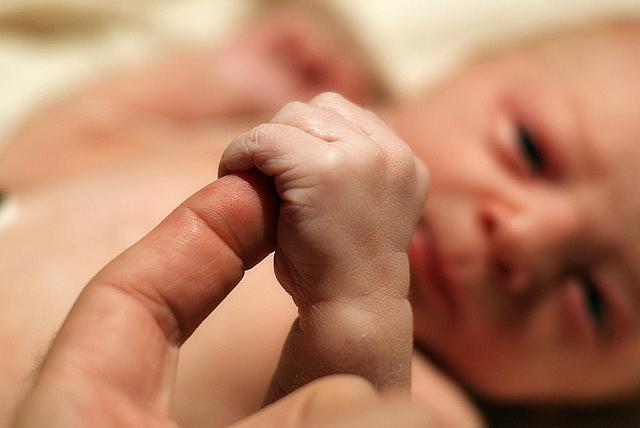Are we massively underestimating how many women have postpartum depression?
What if far more women experience postpartum depression than we think?
According to the Centers for Disease Control and Prevention (CDC), 11 percent of women experience symptoms of depression after their baby is born.
But that’s starting to look like a huge underestimate.
Data from more than 500,000 women collected by Ovia Health, a women’s health technology company, suggest this disease is much more prevalent: 19 percent screened positive on the Edinburgh Postnatal Depression Screen, the standard tool used to screen for depression.
Why are official estimates minimizing the problem? There are two main reasons: Society stigmatizes postpartum depression, and the way we screen for this disease makes it less likely that women and their clinicians will identify genuine suffering.
“I am convinced that the prevalence of depression and other mental health issues during pregnancy and postpartum is significantly higher than national estimates,” said Dr. Melanie Thomas, who specializes in women’s mental health at Zuckerberg San Francisco General Hospital. “For many women, including those who have experienced structural racism and violence, there is no evidence that they will receive the support they need should they report depressive symptoms.”
One reason the Ovia data may be more accurate is that women complete the screening through an app, which can make it easier for them to give an honest assessment of how they’re feeling. The company develops mobile apps for women trying to conceive, pregnant, or who are new parents (full disclosure: I serve as chief medical officer). The data on depression were collected anonymously from women who answered standard screening questions via the apps. (For a deeper discussion of the data, see here.)
Research tells us that patients suffering from mental health disorders are less likely to seek treatment due to the stigma associated with their diagnosis. Ask almost any mother and she will tell you that, except for complaints of exhaustion, negative emotions about being a new mom are frowned upon — sometimes even from those who are supposed to be her sources of support.
The American College of Obstetricians and Gynecologists recommends that obstetric care providers screen women for depression in pregnancy and after delivery. But as the data suggest, screening is an imperfect tool. Traditional methods of screening may be failing women if women underreport suffering when asked about their symptoms in their doctor’s office.
What might be done?
Health care providers could screen women for depression using confidential online screening tools, and work hard throughout the course of the pregnancy to destigmatize mental health disorders so that women know their doctor is a safe source of support.
The impact of better screening for depression would go beyond mental health. The literature demonstrates that women with depression are more likely to consume more health care unrelated to mental health than women who do not suffer from depression, and are also more likely to bring their child to the hospital or emergency room. Those are good things for the whole family.


